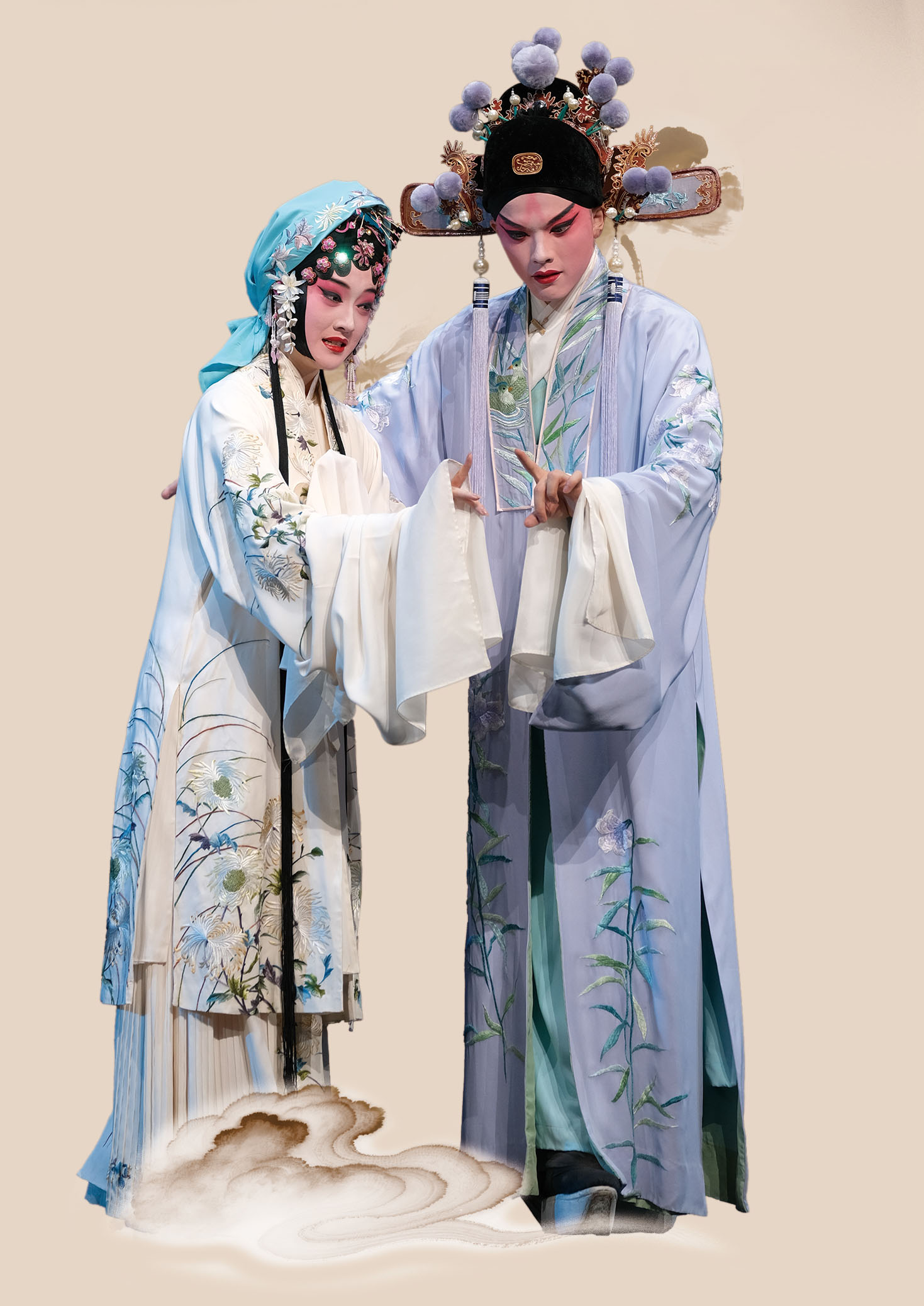As Kunqu Opera undergoes a quiet revival, its youthful stewards are blending centuries-old tradition with contemporary relevance.

At just 21, He Xinyue has found herself immersed in the centuries-old world of Kunqu Opera. Drawn in by its poetic lyrics, graceful choreography, and symbolic movements, like flowing water sleeves and fluttering fans, she is part of a new generation breathing fresh life into this ancient art form.
"Kunqu's elegance lies in its simplicity — the 'one table, two chairs' stage setup increases its sense of grace," she said, reflecting on her first encounter with Kunqu at school.
Now, as one of 38 fifth-generation performers at the Jiangsu Kunqu Opera Theater — all born after 2000 — she is dedicated to preserving Kunqu's rich heritage while making it relevant to modern audiences.
READ MORE: Global students explore Suzhou's cultural depth
Mastering Kunqu, however, demands years of intense discipline.
Performers typically begin training from a young age, practicing tongzigong — a set of foundational skills such as backflips, leg stretches, and backbends. At the theater, early morning exercises to maintain their flexibility and precision became a part of daily life.
"There are no shortcuts — only relentless practice," He said, recalling the challenge of mastering a five-meter silk scarf for her role as Princess Yao Fang in A Dream Under the Southern Bough, a Ming Dynasty (1368-1644) masterpiece by playwright Tang Xianzu.
The young artists staged their first full-scale production last December with a condensed, 17-act contemporary interpretation of the play. The original version spans 44 acts and follows the dreamlike journey of protagonist, Chun Yufen, exploring themes of desire, disillusionment, and enlightenment.
Each young performer, it turned out, faced unique challenges in interpreting their roles.
For 22-year-old Cai Yisheng, portraying a Buddhist monk was particularly difficult.
"I lacked insight into Buddhist philosophy and the calm demeanor the role requires," he said.
With guidance from his mentors and by observing his elderly relatives, Cai gradually absorbed the tranquillity essential to the character.
Similarly, 23-year-old Song Bofan emphasized the importance of going beyond physical technique. "You need to fully internalize the lyrics and understand the character's emotional layers," he said.
Before rehearsals begin, the young artists must memorize every lyric and line, then work closely with fellow performers to learn spatial movements, interactions, and cues. Only then do they start fine-tuning gestures to align with the singing. "This blend of singing and motion is what makes Kunqu so unique," said Song.
Adding to the challenge is Kunqu's distinctive linguistic style — a mix of the Suzhou dialect and zhongzhouyun, or ancient Chinese pronunciation. But for Li Jingyang, 22, the intricate language is part of the charm.
"Each lyric follows a qupai (a fixed musical pattern) — like a poetic tune from the Song Dynasty (960-1279) — rich in emotion and layered with meaning," she explained. "It opens a window to classical literature and presents a vast theoretical world for us to explore."
This literary depth often carries timeless values. Li highlighted The Peach Blossom Fan, a 17th-century classic that, while centered on a love story, ultimately conveys themes of patriotism and loyalty to one's homeland.
"That's the kind of cultural confidence Kunqu inspires," she said. "Its messages still resonate today, reminding us to pursue our dreams while holding onto our responsibilities — to society and to our country."
For this generation of performers, Kunqu is more than just a profession — it's a way of life. "Even in everyday conversations, we find ourselves discussing characters and storylines," Li said. "It just comes naturally to us."
Song added that Kunqu also offers deep moral insight. "By immersing ourselves in the art — the scripts and the characters' backstories — we gain life lessons in ethics and human relationships," he said.
He was particularly moved by A New Account of the Tales of the World, which depicts the integrity and moral courage of ancient scholars.
"There's a saying, 'To master the art, first master your character.' It's only through cultivating virtue and humility that one can truly excel in Kunqu," he said.
Beyond the stage
Today, Kunqu is experiencing a revival. Cai has seen a growing interest among young people, especially as community events and workshops bring the art form closer to the public. Still, Song stressed the irreplaceable experience of watching a live performance.
"Watching it on a phone or TV just doesn't compare to seeing it live in a theater," he said. "The sense of space and immersion is completely different."
ALSO READ: Kunqu Opera is a hard act to follow
The youth edition of A Dream Under the Southern Bough will tour Nanjing and Yangzhou in May and July, with performances in the Guangdong-Hong Kong-Macao Greater Bay Area planned for next year.
"This production means a lot to us," said Li. "We aim to preserve tradition while making it accessible to modern audiences." She added that the group has become close over the years. "We've grown together like siblings over the past decade," she said.
For He, who specializes in guimendan roles (young unmarried women), Kunqu brings personal fulfillment.
"Each role I play has its own emotional world and personality," she said. "I'm grateful my parents encouraged me to study Kunqu. Being on stage, under the spotlight and receiving applause, I discovered not only the beauty of Kunqu but also a deeper understanding of myself."
Guo Jun contributed to this story.
Contact the writers at cangwei@chinadaily.com.cn


